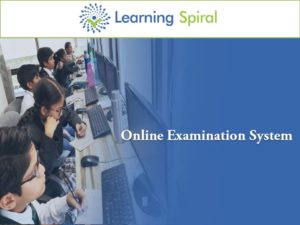
The Assessment Cycle: What is it ?
Assessment Cycles is the cycle of activities covering the creation to administration of exams for evaluating the skills and abilities of people either in the on-boarding stage or as a part of ongoing evaluation.
 Whether one is assessing learning results or goals for a co-curricular program or for a single course, it is important that assessments be used as an iterative procedure. This will help to give valuable feedback about how students/employees are learning or progressing in their learning goals.
Whether one is assessing learning results or goals for a co-curricular program or for a single course, it is important that assessments be used as an iterative procedure. This will help to give valuable feedback about how students/employees are learning or progressing in their learning goals.
The Assessment Cycle: The Importance of technology
Numerous advanced educational organizations have elaborated the benefits of assessing academic and administrative performance through technological tools. Below are the key advantages:
- Greater variety and authenticity in the design of evaluations.
- Enhanced student commitment, for instance through interactive formative assessments with adaptive feedback.
- Choice in the planning and area of evaluations.
- Productive accommodation, marking, balance and information storage processes.
- Consistent results with opportunities to combine human and computer marking.
- Instant feedback.
- Innovative methodologies based around the use of creative media and online peer and self-assessment.
- Precise, convenient and accessible evidence on the effectiveness of educational modules plan and conveyance.
- Distribution of question items in a secure manner.
- Very little hassle in creating and taking tests / assessments for continuous evaluation.
The above advantages have led to the rapid adoption of online examination system or University Examination Management Systems which allow the administering of assessments at scale with the best security and speed. Also modern online examination systems allow the use of richer and more varied question items which can help in better evaluation or more interesting engagement of applicants / students in helping them achieve their development goals.




